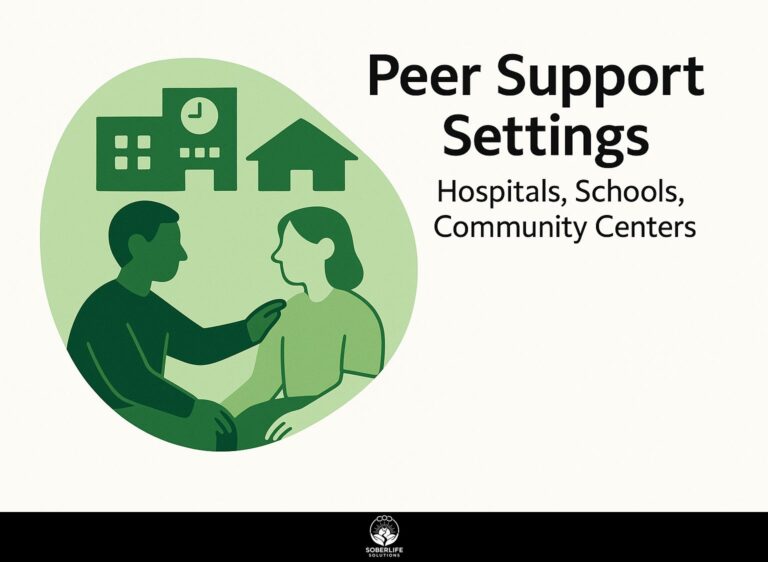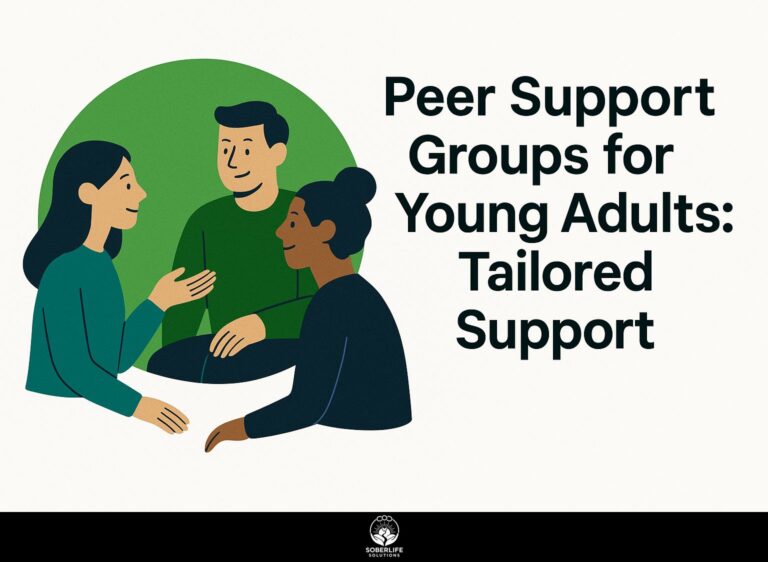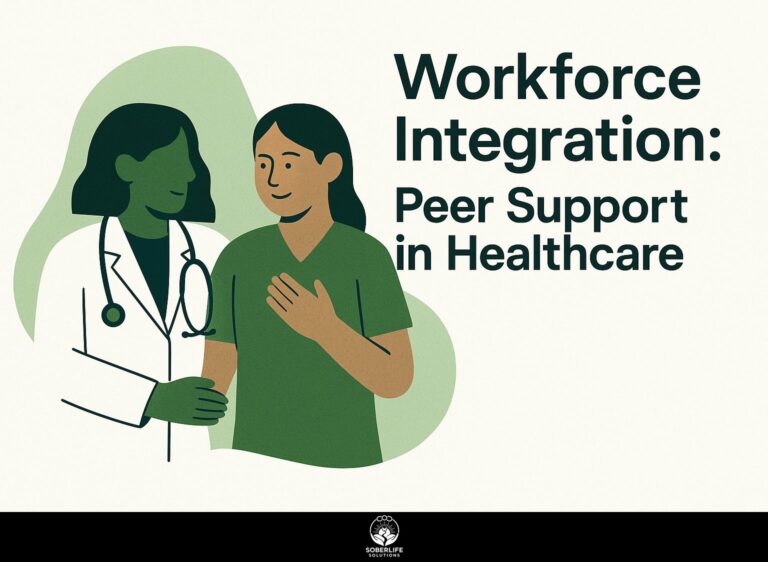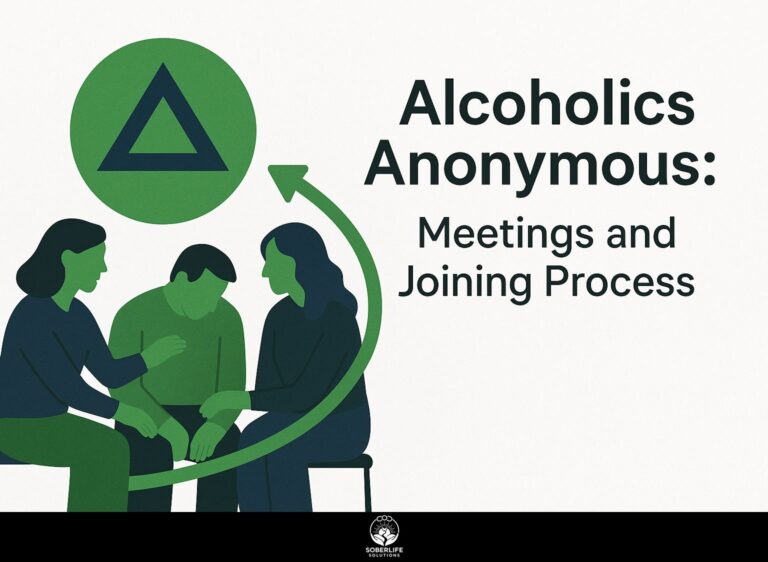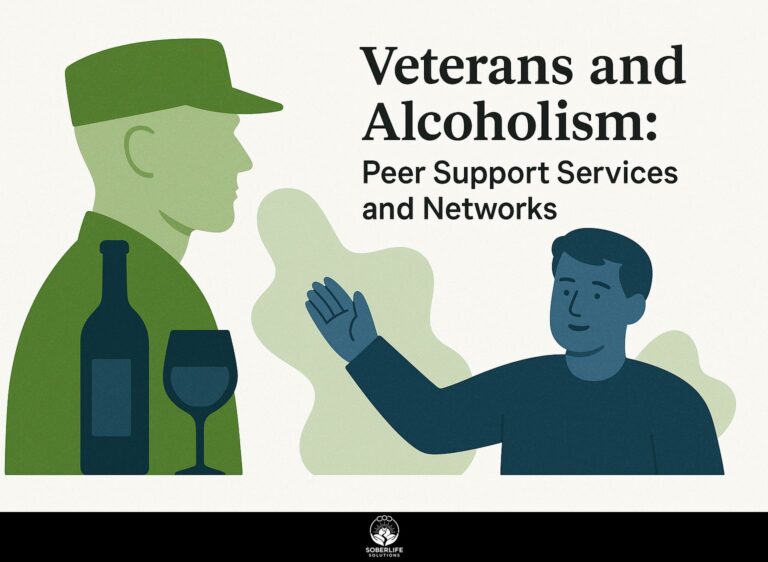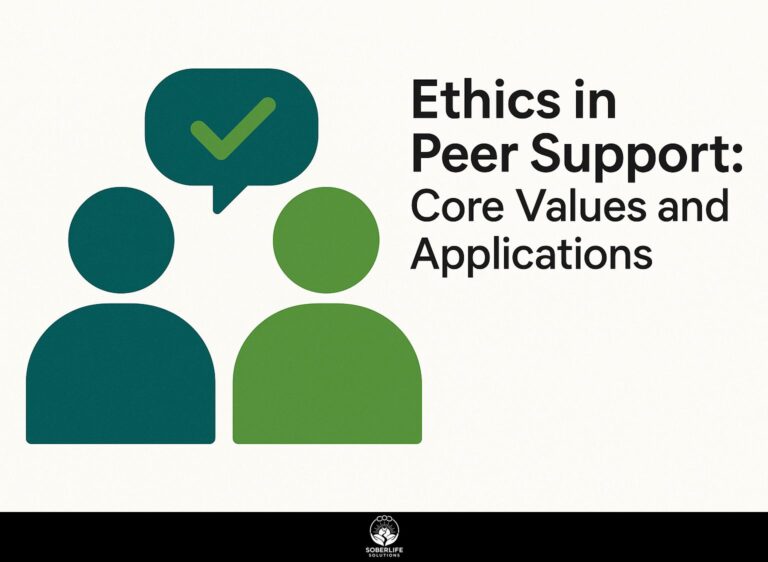SMART Recovery: Purpose and Participation Guide
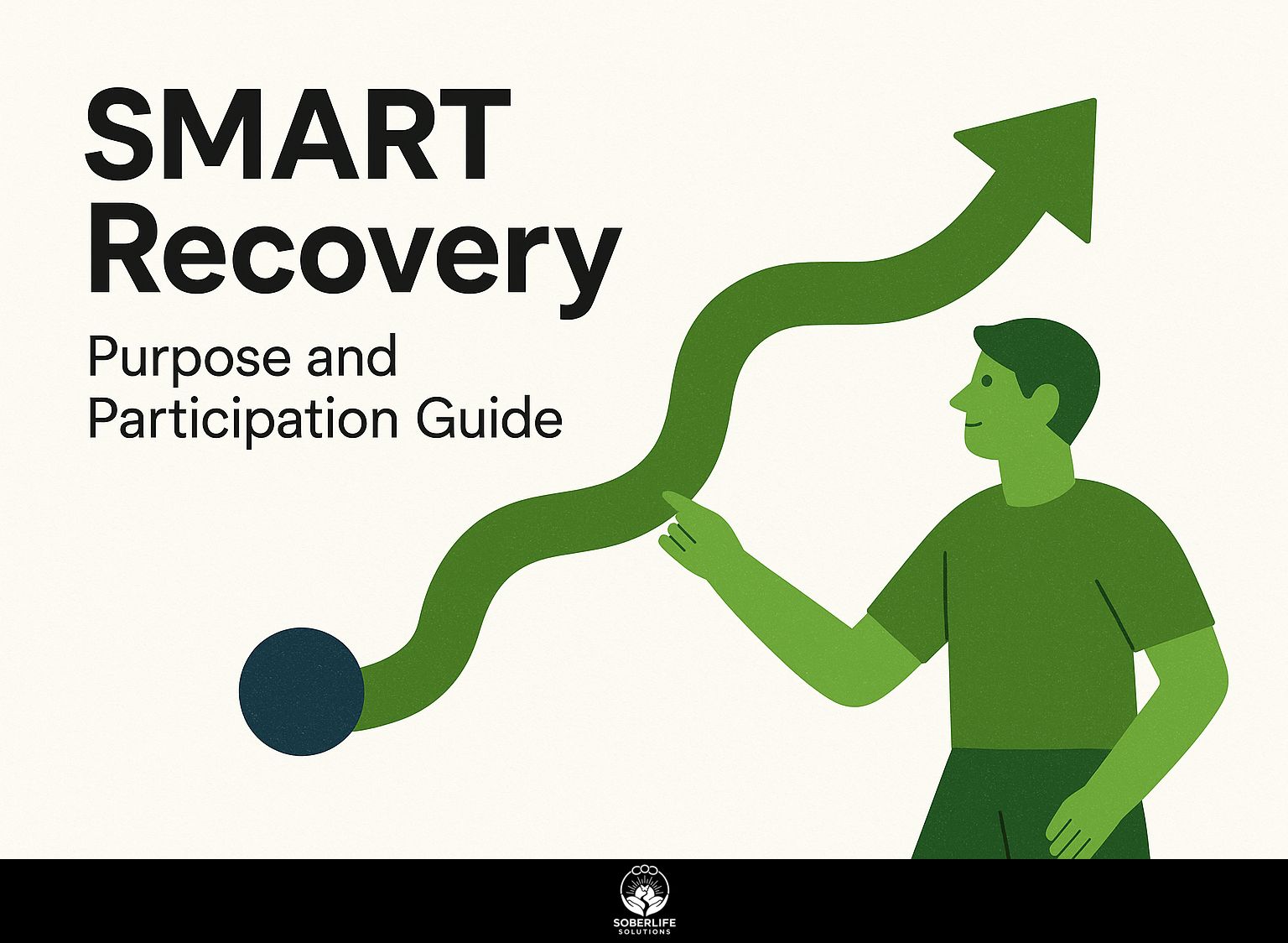
Struggling with addictive behaviors? SMART Recovery provides a way to help people take charge of their own actions. It relies on approaches that research confirms as effective, rooted in cognitive-behavioral therapy. SMART Recovery focuses on personal responsibility and making your own decisions, different from programs like Alcoholics Anonymous. In this guide, we’ll look at its purpose, main ideas, and ways to get involved, helping you move toward lasting change. Learn how SMART Recovery can help you manage your life today!
Key Takeaways:
What is SMART Recovery?
SMART Recovery stands for Self-Management and Recovery Training. It’s a support group that helps people manage their addiction recovery.
The program targets individuals struggling with various addictions, including alcohol, drugs, and compulsive behaviors. Its main goals are to help participants build confidence and stay motivated.
SMART Recovery applies cognitive-behavioral therapy methods to help people change their thinking and behavior concerning addiction. Participants take part in self-guided workshops, use resources like the ABCs of REBT (Rational Emotive Behavior Therapy), and establish achievable goals in their recovery process.
This method helps individuals grow and builds a helpful group for long-term improvement.
History and Development
SMART Recovery started in 1994 and expanded by using proven methods based on the latest research on addiction treatment.
SMART Recovery uses cognitive-behavioral methods to boost motivation, develop practical ways to handle challenges, and build self-control. According to a detailed analysis from Verywell Mind, cognitive behavioral therapy (CBT) has been effective in treating alcohol and drug addiction, which aligns with SMART Recovery’s methodologies.
The SMART Recovery Handbook was helpful because it provided clear instructions for participants.
SMART tackled the growing issue of addiction by offering online meetings and resources to help people worldwide. This growth has allowed a varied group of people to participate in recovery support, revealing the benefits of peer support groups in addiction treatment-a concept further explored in our article on peer support groups’ benefits. This expansion shows the program’s ability to meet current needs in addiction treatment.
The Purpose of SMART Recovery
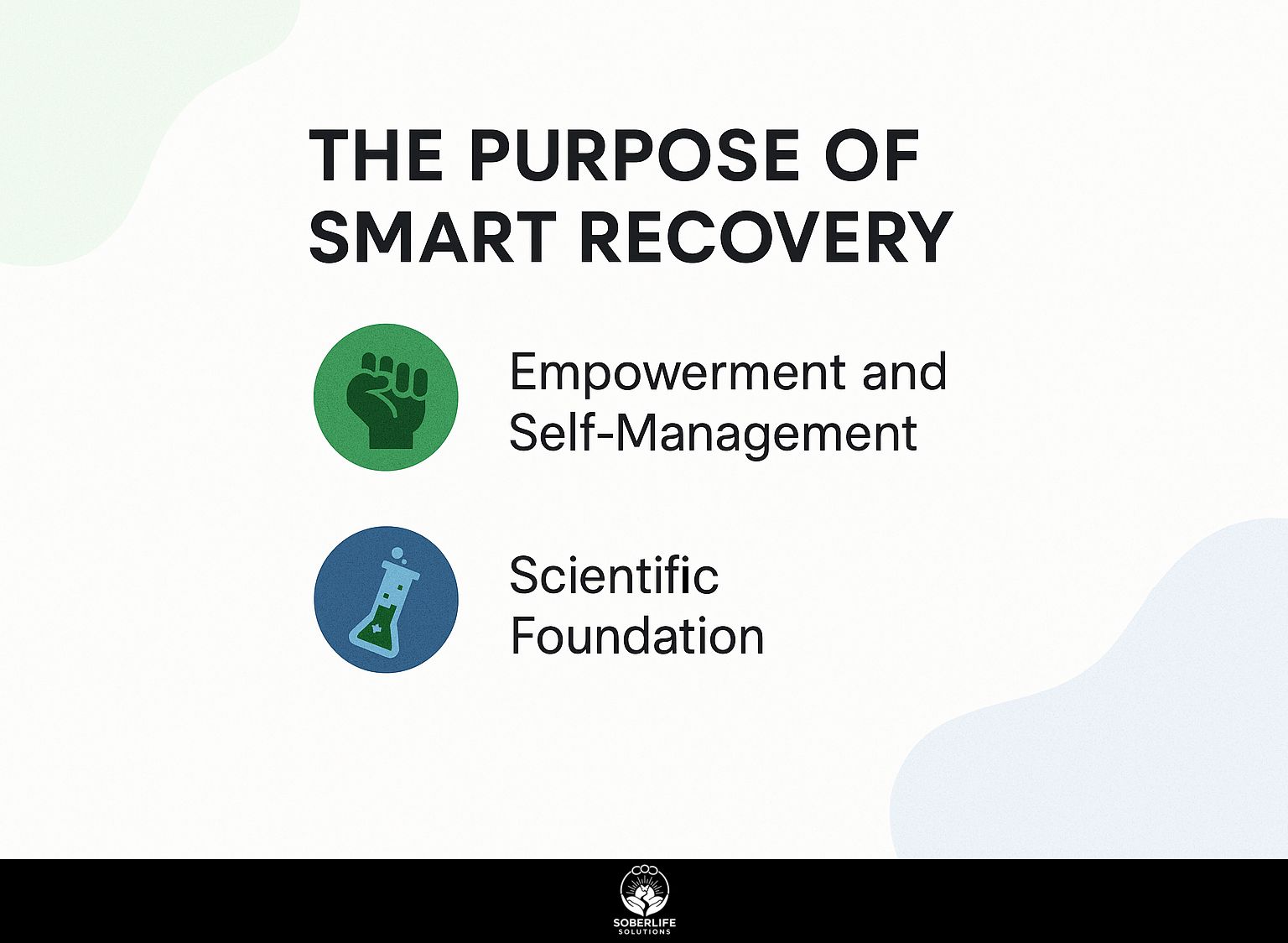
SMART Recovery assists individuals in managing their actions, supporting them in maintaining long-term recovery. To further enhance this journey, consider exploring sober support systems that help in providing crucial support and guidance.
Empowerment and Self-Management
SMART Recovery provides people with resources to help them make personal plans and modify their actions effectively.
One of the key exercises is the Cost-Benefit Analysis, where individuals list the pros and cons of their addictive behaviors versus the benefits of sobriety. This reflective practice provides clarity on personal motivations.
Another effective tool is the Hierarchy of Values, which helps participants identify their core values, such as family, health, or career, and rank them. This exercise encourages focus on what truly matters during recovery, guiding decisions and reinforcing commitment to change.
Scientific Foundation
SMART Recovery uses helpful methods, applying cognitive-behavioral therapy to manage addiction effectively.
One of the core methods is cognitive restructuring, which helps participants identify and challenge distorted thinking patterns that lead to cravings. For instance, according to Verywell Mind, cognitive restructuring is particularly effective in reframing negative thoughts associated with social anxiety and addiction.
When someone feels stressed, they might say, “I need a drink to handle this.” SMART Recovery shows them how to change this thought to, “I can handle stress by using healthy methods like deep breathing or exercising.” This method aligns with the principles outlined in our analysis of SMART Recovery: Principles and Benefits.
Participants take part in exercises that promote positive self-talk, helping them control their urges. Tools like thought record sheets can help with this process, offering a clear method to look at and change their thoughts.
Core Principles of SMART Recovery
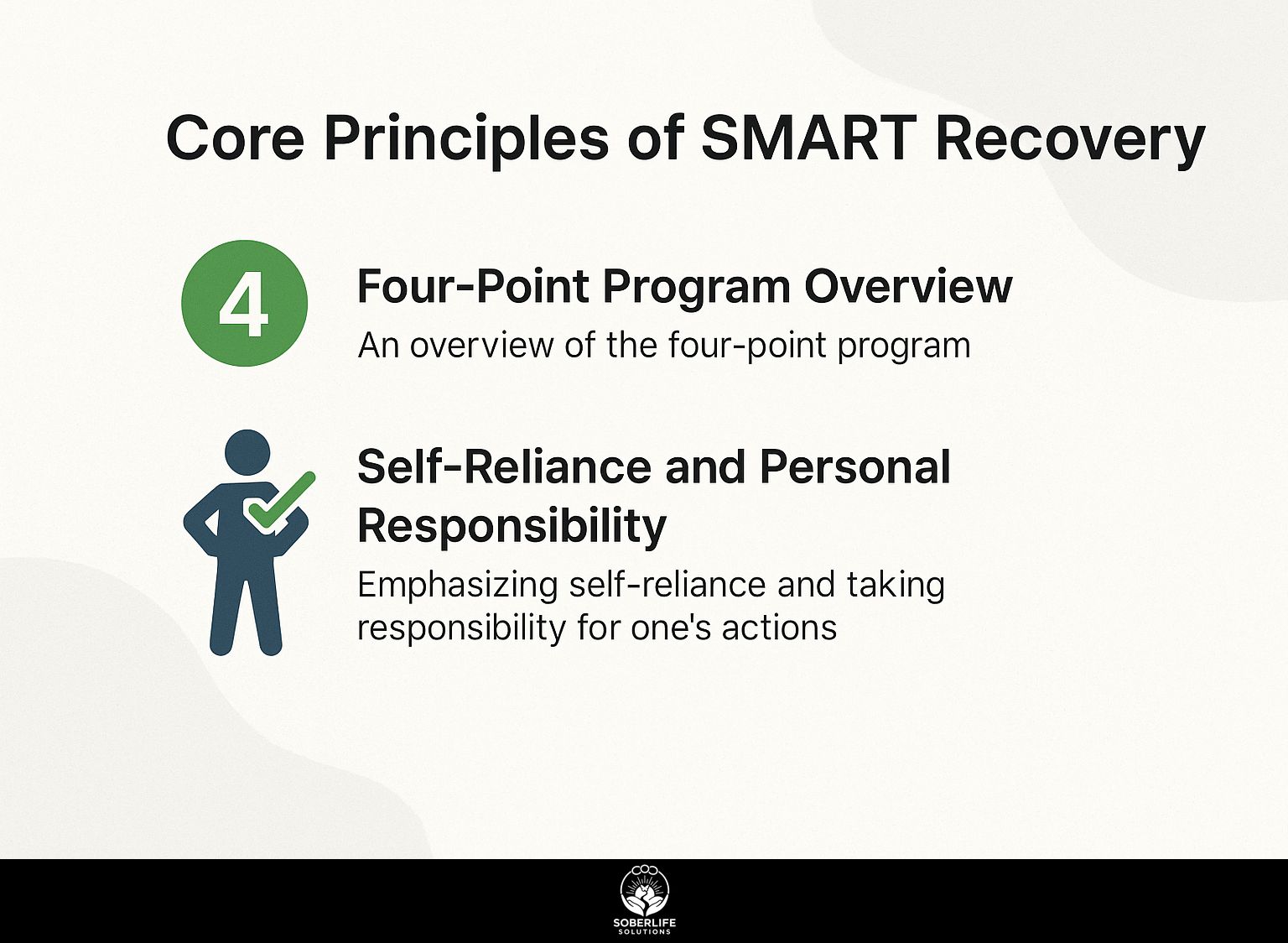
SMART Recovery concentrates on four key principles to support individuals in quitting their addiction. For an in-depth understanding of these principles, you may want to explore the SMART Recovery: Principles and Benefits that provide insightful details and benefits associated with this approach.
Four-Point Program Overview
The Four-Point Program consists of building motivation, coping with urges, managing thoughts, and leading a balanced life.
To successfully carry out the Four-Point Program, start by setting clear and realistic goals that keep you motivated, such as jogging three times a week.
For coping with urges, practice techniques such as deep breathing or engaging in a hobby when cravings strike.
To take control of your thoughts, try writing in a journal or doing mindfulness exercises each day to be more aware of yourself. Techniques like Cognitive Behavioral Therapy (CBT) can be particularly effective, as discussed in Verywell Mind’s exploration of CBT for addiction.
Prioritize a balanced life by scheduling regular downtime and social activities, ensuring a well-rounded approach that nurtures both mental and physical health.
Self-Reliance and Personal Responsibility
Independence is a key part of SMART Recovery, helping individuals manage their recovery by themselves.
To develop independence, participants can write in a journal daily to reflect on their progress and any challenges they encounter.
Setting specific, achievable goals serves as a powerful motivator; for example, committing to attend one support meeting each week.
The SMART Recovery Handbook guides individuals in learning techniques to manage their actions more effectively.
Practicing mindfulness through meditation can help individuals stay grounded and focused.
By regularly assessing what causes their cravings and how they react, participants strengthen their skills to manage cravings by themselves, building more confidence in their recovery process.
Participation in SMART Recovery
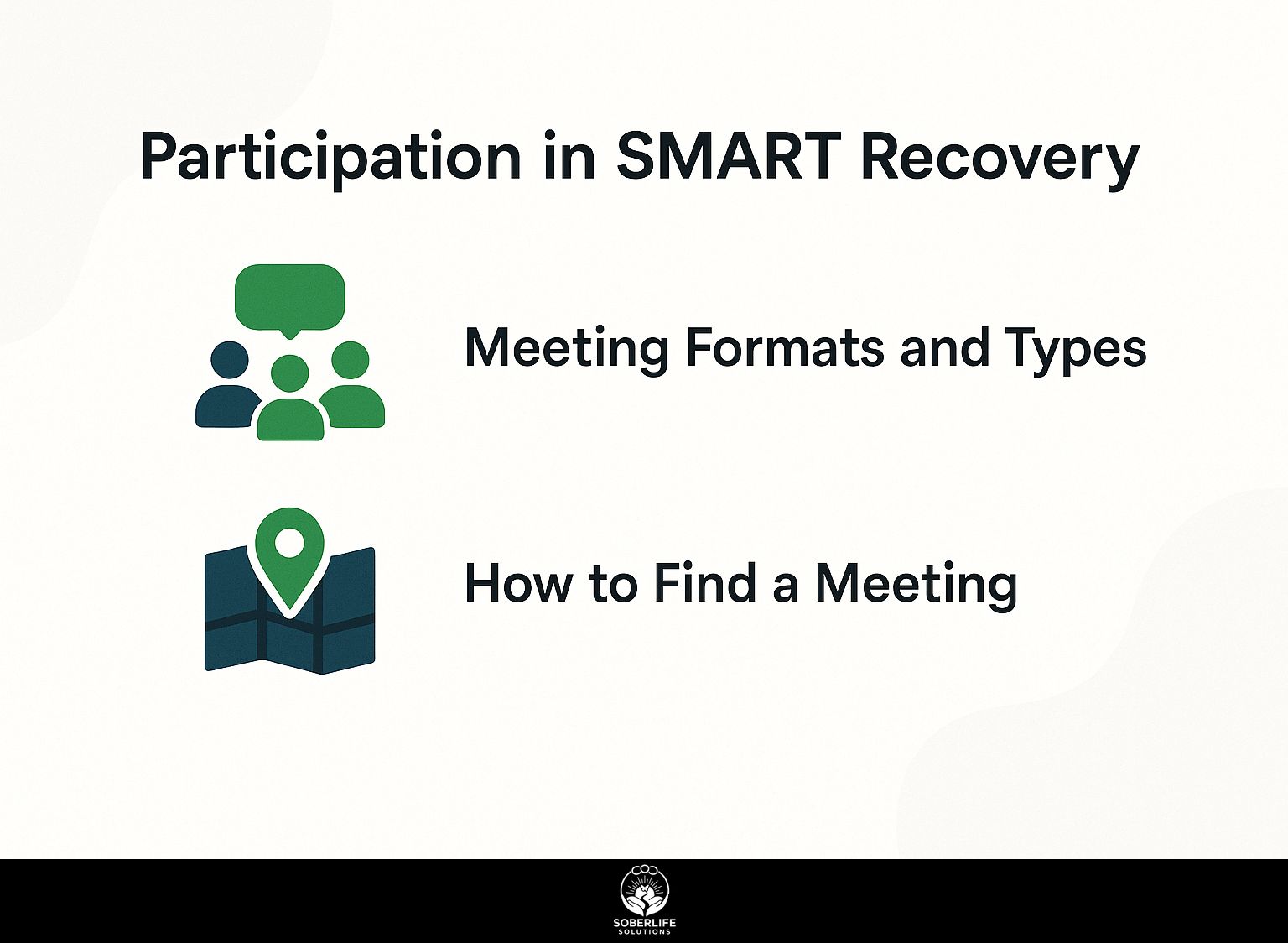
SMART Recovery offers various options and locations for people to participate in their recovery process.
Meeting Formats and Types
Participants can join SMART Recovery meetings either face-to-face or on the internet, depending on what they prefer.
These meetings can be participant-led, where attendees share experiences and support one another, or facilitator-led, providing structured guidance and expert advice.
For example, a participant-led meeting encourages open dialogue, allowing individuals to learn from each other’s coping strategies. In contrast, a facilitator-led session often includes educational parts, like talking about recovery tools.
Online platforms, like Zoom or Skype, allow people to connect no matter where they are, building a feeling of togetherness that can greatly improve recovery efforts.
How to Find a Meeting
Finding a SMART Recovery meeting is easy. You can join local or online support groups through internet options.
Visit the SMART Recovery website to locate meetings. Use the search tool to find meeting locations. Input your zip code to find nearby in-person meetings or filter results to see virtual options.
Find SMART meetings at local community centers or hospitals.
Joining regular meetings is important for continuous support, enabling people to take responsibility and share their experiences with others facing similar problems. Engaging in these discussions strengthens your recovery network.
Tools and Resources
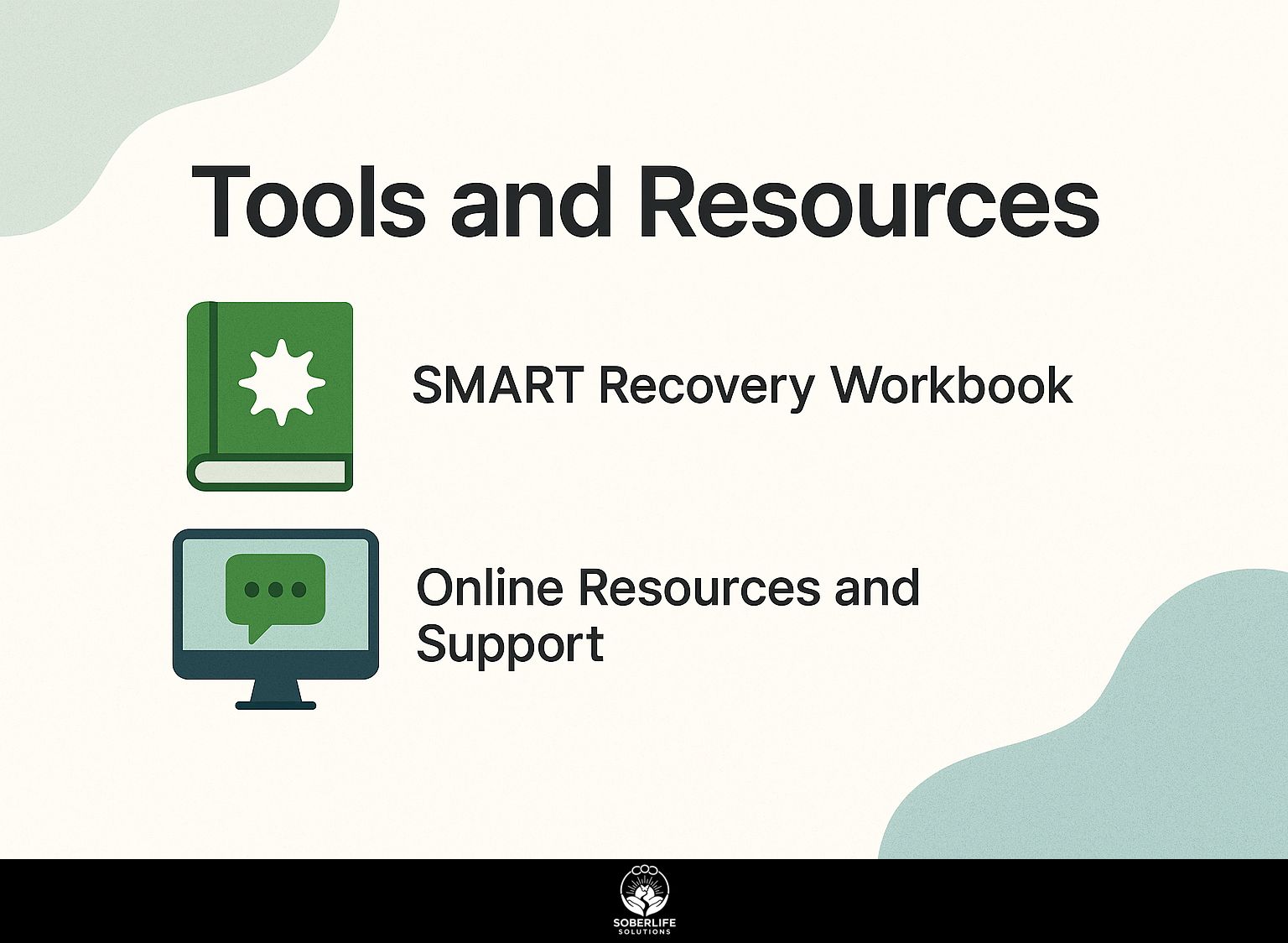
SMART Recovery offers various tools and resources to support participants during their recovery journey. For those looking to enhance their recovery strategies, exploring how to develop healthy habits can be an invaluable next step.
SMART Recovery Workbook
The SMART Recovery Workbook provides practical skills and exercises to assist with recovery strategies and methods for self-control.
This evidence-based workbook features a variety of exercises focused on behavior modification, such as identifying triggers and developing coping strategies.
For example, the `ABC’ model helps people understand the events that trigger their actions, the beliefs they hold, and the outcomes of their actions, promoting better self-awareness.
Sections on goal setting guide users in creating actionable steps toward recovery, enhancing motivation.
Each chapter contains homework assignments that promote regular use of these skills, serving as a useful resource for anyone dedicated to their recovery process.
Online Resources and Support
SMART Recovery provides online assistance with webinars, discussion boards, and digital resources to support recovery.
To make the most of these resources, try joining weekly online meetings that offer live help and encouragement.
The SMART Recovery mobile app offers daily tools for self-reflection and notifications to support your ongoing recovery process.
Join the online discussions to meet others, share your stories, and learn from each other.
Check out the different webinars on subjects like handling stress and avoiding relapse, which can help you learn more and improve your abilities.
Regularly using these tools can greatly support your recovery process.
Frequently Asked Questions
What is SMART Recovery?
SMART Recovery, meaning Self-Management and Recovery Training, is a program that uses science-based methods to help people quit addiction.
What is the purpose of SMART Recovery?
SMART Recovery offers support for people to develop and keep the motivation and skills required to manage addictions.
How does the SMART Recovery program function?
The SMART Recovery program has a four-step plan to help people stay motivated, handle cravings, control their thoughts, emotions, and actions, and live a well-rounded and satisfying life while improving.
Who can participate in SMART Recovery?
SMART Recovery welcomes anyone who seeks help to stop addiction. It is not limited to a specific substance or behavior. It welcomes individuals at any stage of recovery and does not require abstinence as a prerequisite for participation.
Do I need to go to meetings in person to join SMART Recovery?
SMART Recovery provides both in-person and online meetings, offering flexibility for individuals with tight schedules or those who like participating from home.
Is SMART Recovery a substitute for standard treatment programs?
SMART Recovery is not meant to replace regular treatment programs. It can be used alongside other therapies or support systems. It is important to consult with a medical professional to determine the best course of treatment for your individual needs.

